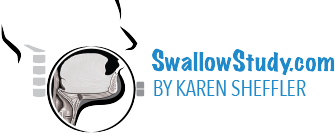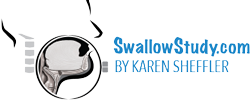Medical Expert Witness
Medical Speech-Language Pathology and Dysphagia Expert Witness
A speech-language pathology (SLP) medical expert witness is someone who is qualified (by extensive clinical experience and study) to form opinions with respect to swallowing, airway protection, aspiration risk, choking risk, cognitive-linguistic status, and speech and vocal function as it relates to a case under litigation.
This expert will assist the family, counsel, judge and jury in understanding the following: the standard of care for diagnosis and treatment, field-specific technical issues, and underlying facts. The expert will help summarize the evidence from the medical records and depositions. An expert witness may testify in the form of expert opinions and conclusions drawn to a reasonable degree of certainty.
In medical malpractice cases, SLP expert witness asks: What would a reasonable and competent speech-language pathologist and related practitioners do when faced with a similar situation and setting? The expert investigates if prudent decisions, documentations and communications were made to attempt to mitigate (reduce severity or minimize risk for) negative outcomes, as no healthcare practitioner can prevent aspiration and choking 100% of the time. Was the evaluation and treatment process acceptable and sound? This does not ask if the care displayed advanced or exceptional skills. If care was below accepted standards of professional conduct, then the expert determines if the care directly lead to the negative outcomes (i.e., the suspected choking and/or aspiration event, the health decline, or death of the person)?
Karen Sheffler has extensive experience in medical speech-language pathology (SLP), specifically in the field of swallowing and dysphagia for the adult and geriatric population. (She can make referrals to other speech-language pathology experts within the infant to pediatric populations.) She received her board-certification as a specialist in swallowing and swallowing disorders (dysphagia) in 2012, and she can offer a tremendous amount of assistance at any stage in the litigation process.
Karen has clinical experience across the continuum of care, having worked in home health, sub-acute skilled nursing facilities, long-term care, rehabilitation centers and hospitals. She still maintains her clinical practice in a large acute care teaching hospital with inpatients and outpatients.
Karen is now training fellow SLPs who are board-certified specialists in swallowing. Growing our business (SwallowStudy & Associates, LLC) will help to provide greater national coverage of our dysphagia expert witness services for defense and plaintiff attorneys.
Since beginning her expert witness practice in 2016, Karen has worked with both defense and plaintiff attorneys on over 35 cases.
Karen is detail oriented in her medical record reviews, writing thorough reports to outline the full timeline of events. Additionally, she can clearly summarize the key points in a case, which has helped to reach favorable resolutions faster.
Key Words and Topics of Cases Addressed:
Normal swallowing.
Diet and liquid modifications made to achieve safer oral intake.
Aspiration and reflux precautions, patient safety, safe swallowing strategies.
Assessment and treatment of swallowing disorders (dysphagia), including all phases: oral, pharyngeal, and esophageal (aka, oropharyngeal dysphagia and pharyngoesophageal dysphagia).
Laryngopharyngeal reflux (LPR) and gastroesophageal reflux disease (GERD).
Differentiating when negative outcomes are potentially related to oral intake of foods, liquids or pills versus other through sources (i.e., not managing secretions or aspiration of regurgitated or refluxed substances).
Instrumental evaluations of swallowing (e.g., Videofluoroscopic SwallowStudy.com/VFSS, also known as the Modified Barium SwallowStudy.com/MBSS, and the Fiberoptic Endoscopic Evaluation of Swallowing/FEES)
Airway issues, vocal cords, larynx
Aspiration, aspiration pneumonia, aspiration pneumonitis
Choking, asphyxiation, hypoxia, anoxia, leading to intubation and death
End-of-life decision-making regarding eating and drinking and accepting risks of aspiration and/or choking (also known as, goals of care discussions).
The person (if they have decision-making capacity) or the person’s appointed health care proxy has a right to make their own informed medical decisions.
Conversations regarding quality of life and palliative care versus curative care as related to maintaining nutrition and hydration through an oral route versus alternative means (e.g., feeding tubes).
Diagnoses & Conditions
Neurological events, disorders & diseases (e.g., stroke, dementia/Alzheimer’s Disease, Parkinson’s Disease, etc.); delirium; post-extubation dysphagia; medication-induced dysphagia; radiation-associated dysphagia; sarcopenia; iatrogenic factors from intensive care; multi-factorial or complex medical issues and more.
Locations of where care was performed in the cases
Home, group home, skilled nursing facility, rehabilitation center, and acute care hospital.






